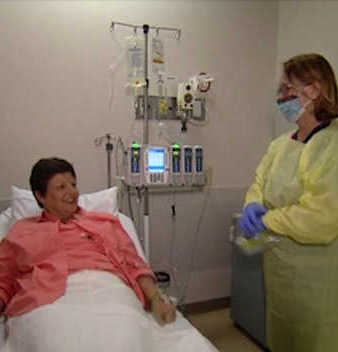Genetic glitch can predict response to new class of cancer drugs
Patients with colon and other cancers who have a specific defect in genes needed for DNA repair are far more likely to respond to a new class of drugs such as Merck & Co’s Keytruda, which enlist the immune system to attack tumors, a new study has shown. The small study, financed not by Big Pharma but by swimmers who raised charitable donations, tested Keytruda in patients with advanced colon and rectal cancers and found 92 percent of patients with the genetic defect had their disease controlled compared with 16 percent who did not carry the defect.
Conservatively speaking, we think this would help 2 to 3 percent of all cancer patients.
Dr. Luis Diaz of the Ludwig Center at Johns Hopkins Kimmel Cancer Center in Baltimore
The study involved patients with defects in the machinery needed for fixing mistakes in DNA. Individuals with these defects develop tumors teeming with mutations, as many as 20 times more than cancer patients with working copies of these repair genes. Since the immune system is trained to recognize foreign invaders, Hopkins researchers hypothesized that patients with tumors loaded with mutations might have a more robust response to cancer drugs that rev up the immune system, such as Merck’s Keytruda or Bristol-Myers Squibb’s Opdivo

Health cancer drugs